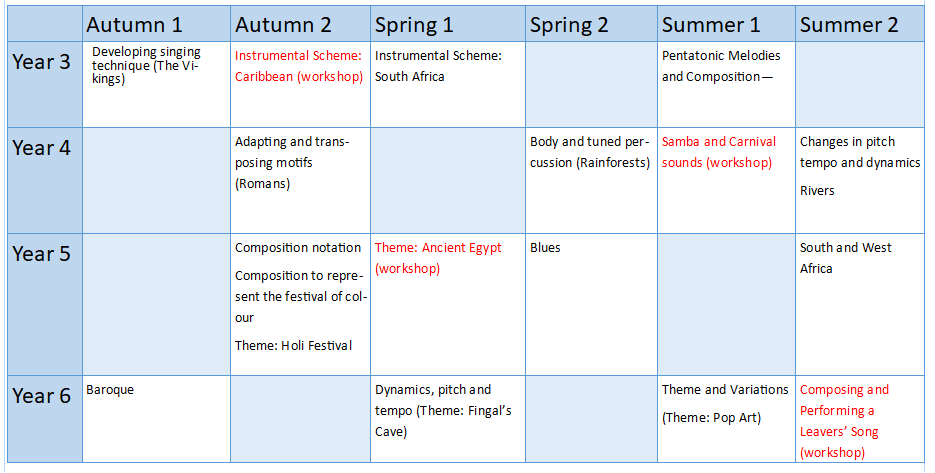Implemention
The 'implementation' of the music curriculum is how the learning is delivered.
The Horsell music curriculum takes a holistic approach to music, in which the individual strands of music are woven together to create enriching and engaging learning experiences:
- Performing
- Listening
- Composing
- The history of music
- The inter-related dimensions of music
Music is taught in 'units', which are weekly blocks of lessons that build on previous learning. These units combine these strands within a cross-curricular topic designed to capture children's imagination and encourage them to explore music enthusiastically. During their time at Horsell Junior, pupils are taught to sing fluently and expressively, and play tuned and untuned instruments accurately and with control. They learn to recognise and name the interrelated dimensions of music - pitch, duration, tempo, timbre, structure, texture and dynamics - and use these expressively in their own improvisations and compositions.
At Horsell Junior School, our Year 3 children also learn a tuned percussion instrument for a term to allow them to develop their expertise in using a tuned instrument.
Our progression and skills document shows the skills and knowledge that are taught within each year group and how these skills develop year-on-year to ensure attainment targets are met at the end of the key stage.
Our scheme follows a 'spiral curriculum' model where previous skills and knowledge are returned to and built upon. Children progress in terms of tackling more complex tasks and doing more simple tasks better, as well as developing understanding and knowledge of the history of music, staff and other musical notations, as well as the interrelated dimensions of music.
In each music lesson, pupils actively participate in musical activities drawn from a range of styles and traditions, developing their musical skills and their understanding of how music works. Lessons incorporate a range of teaching strategies from independent tasks, paired and group work, as well as improvisation and teacher-led performances. Lessons are 'hands-on' and incorporate music and dance elements. Talented pupils are challenged through extension activities which are provided as part of the KAPOW music scheme.
Music is taught in four, five lesson units per year and the school has a wide range of instruments for the children to use in lessons, including a class set of glockenspiels, ukuleles and a variety of untuned percussion. Each year group also participates in a two-day composition workshop, which concludes with an informal performance to parents.
Every year, many of our children perform in our annual Music Festival. Further performance opportunities include shared events with the high school, and performances at many local events. Over 80 of our children learn a musical instrument, the majority through our team of on-site instrumental tutors, and musical successes are celebrated in our half-termly celebration assemblies.

